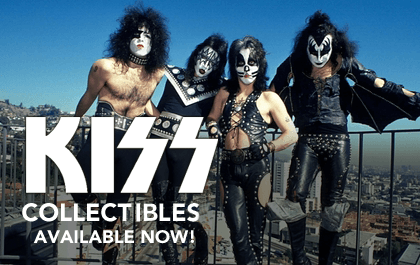Paul Stanley reflects on tour and why Detroit is still special to him

Brian McCollum, Detroit Free Press
The operating principle for Kiss right now is that it's better to burn out — or at least burn up all the pyro — than to fade away.
In a farewell outing that guitarist-vocalist Paul Stanley calls "a victory lap" — with the most over-the-top Kiss stage production to date — the band has embarked on its End of the Road World Tour, a year-long run that kicked off in January and is currently scheduled through December in New Zealand.
We've kind of been here before, of course. In 2000, the band embarked on a lengthy jaunt called the Kiss Farewell Tour, but by 2003 was performing in earnest again. Stanley and Gene Simmons went on to explain the reversal by saying it merely had been a final outing for the band's full original lineup, including Ace Frehley and Peter Criss.
But unlike the tour 19 years ago, there's a genuine air of finality this time: Simmons is 69, Stanley is 67, and the band specifically cites those advancing years as the reason to call it quits.
The foursome that will hit Little Caesars Arena on Wednesday is the unit that's been donning the costumes and makeup for well more than a decade now, with Tommy Thayer on lead guitar and Eric Singer on drums.
Detroit looms large in Kiss lore. In 1974, when other audiences were turning their backs on the band — sometimes literally — the fervent welcome from Motor City fans practically made this a second hometown for the New York-based outfit.
When Kiss announced this final tour with a September performance on "America's Got Talent," the song of choice was "Detroit Rock City," the 1976 anthem that forever linked the group to the region. Last month, the band appeared on "The Price is Right" to help award a winning contestant with a trip to see Kiss in Detroit.
So is this LCA show, on a Wednesday night early in the tour, really, truly, 100% the final go for Kiss in this town?
In a conversation with the Free Press, Stanley pauses.
"It’s a tough question," says Stanley. "But the easiest answer is: We want to play for everybody that wants to see us.
"If it turned out there was reason to return, we would have to consider that. I don’t want to leave anybody out of this experience."
Stanley talked with the Free Press about the final Kiss tour, the stage production and the band's long, rich relationship with Detroit.
QUESTION: Can you talk about the production on the tour, all the bells and whistles?
ANSWER: Have you seen all the photos?
Q: I have. It’s pretty insane.
A: Good word. It’s insane. It really takes what we’ve done, and what we believe in, to another level. This being the end of the road, I thought that more than in recent times, we needed to raise the bar once again.
I think we initially saw ourselves as becoming the band we never (got to see in concert), in terms of our staging. We always wanted to be a band that gave the audience the respect and appreciation that it deserved. We came at a time when most bands thought they were doing the audience a favor by being there. We said: "No, no — the audience is doing the band a favor." So there’s a lot to live up to and a lot to take into consideration.
We were kind of a wake-up call to audiences. And on this tour, more than ever, we needed to make that statement once again. Certainly there are people out there doing shows that are terrific, but most are generic. You could put any performer on any of those stages and it would work. This stage is purely our stage. It incorporates so much state-of-the-art lighting, pyro, (hydraulic) lift. It really is the ultimate Kiss show, and the response has been massive. The turnouts have been enormous.





